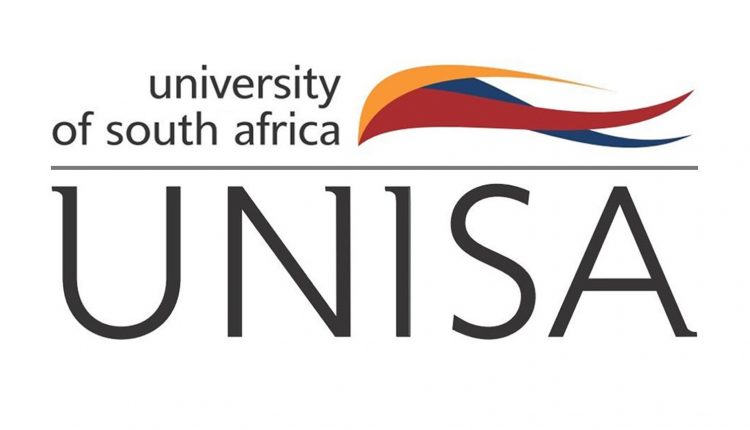University of South Africa: Unisa SBL embarks on AMBA accreditation journey
AMBA is an international accreditation body headquartered in London, England. It is regarded as the global standard for all Master of Business Administration (MBA), Doctor of Business Administration (DBA) and other master’s degrees, currently accrediting programmes from the top 2% of business schools in more than 75 countries. AMBA accreditation is a highly sought-after endorsement of an institution’s MBA programme as it confers one of the most valued nods of approval to the quality of an MBA programme. It also accredits other business-related master’s degree programmes such as the Master of Business Leadership (MBL) and the Master of Business Management (MBM).
Having submitted the official letter of intent to AMBA in December of 2019, and receiving acknowledgement of same from AMBA late in January of 2020, the SBL set things in motion in preparation for a challenging but highly rewarding journey towards AMBA accreditation.
However, no one could have predicted that the world would grind to a halt in February of 2020 due to the outbreak of the Covid-19 pandemic. The SBL had to capacitate a newly established AMBA project office almost entirely remotely during South Africa’s first hard lockdown. This proved more challenging than one would have expected, despite Unisa’s history as a traditionally open, distance and eLearning institution. The interruption and delay caused by Covid-19 and the subsequent government-issued lockdowns meant that the SBL submitted the first official application for accreditation to AMBA at the end of March of 2021 and not within the prescribed one-year period.
The feedback received several weeks later was sobering. In it, AMBA gave clear guidance on the gaps that the SBL needed to plug in its master’s degree programme, which would then enable much better preparation for the accreditation processes that lay ahead. The gaps identified were mainly in the curriculum breadth and depth of the MBA and MBL programmes, and in the interaction and delivery of the programmes to students.
On the positive side, the SBL was able to demonstrate to AMBA the career and cost-to-company salary progression that SBL alumni had achieved as a result of obtaining their MBA and MBL qualifications. The SBL was also able to provide highlights of its research outputs over the previous three years. In terms of faculty quality and sufficiency in the MBA and MBL programmes, the SBL boasts a highly qualified and experienced teaching faculty boasting 22 full-time and 19 part-time academics, with six nationalities represented. Faculty sufficiency data will be updated to reflect the changes that have occurred when SBL progresses with the accreditation process. The changes are due to the teaching faculty having been boosted significantly with the appointment of new academics and adjunct faculty in the past year. In terms of student cohort data, at the time of the initial submission to AMBA, the MBA and MBL enrolment figures averaged 114 over the periods 2019 to 2021 with a healthy balance between male and female students, and across various academic and professional backgrounds and experience levels.
The AMBA accreditation journey is considered to be a developmental process and an opportunity for continuous improvement under the guidance of a world-class quality assessment body. It is, therefore, in this spirit of continuous learning and improvement that the feedback from AMBA was taken and measures immediately put in place to address the identified gaps while further refining our strengths.
During the second half of 2021, the AMBA project was paused to allow the Council on Higher Education audit to take place. This created the opportunity to identify and concentrate effort on further improvements to the MBA and MBL programmes. Out of this process and with continuous learning in mind, the MBA/MBL Improvement Plan was developed. The improvement plan is already being implemented in a multi-pronged approach that includes the re-curriculation of the MBA and MBL, the reintroduction of an MBA/MBL standardised entrance test, and the improvement of delivery and interaction in the MBA and MBL programmes.
Where are we now?
The SBL is going full steam ahead in ensuring that it is ready to proceed with AMBA’s processes of accreditation. The school will be able to demonstrate to AMBA the various areas of improvement that it has implemented, as well as the existing strengths that it has refined and capitalised on in the past year and a half. Robust engagements are taking place throughout the institution on ways to not only meet, but exceed AMBA accreditation criteria, and improve both academic and support portfolios. While the SBL’s goal is to attain the AMBA accreditation, the overarching strategic objective is to achieve high-quality accredited programmes, institutional sustainability and market differentiation of the MBA and MBL programmes. AMBA accreditation will not only provide the SBL with international recognition of its master’s programmes, but provide the impetus for the ultimate realisation of Triple Crown accreditation.
AMBA facts and benefits
The Business Graduates Association (BGA) established its MBA accreditation programme in 1983, then later changed its name to Association of MBAs (AMBA) in 1987.
Stellenbosch Business School was the first South African business school to achieve AMBA accreditation in 2002. Currently, eight South African business schools are AMBA accredited.
Students and graduates of AMBA-accredited programmes have access to benefits such as seminars, masterclasses, webinars and networking events around the world. They also enjoy discounts of up to 35% off best-selling management books from leading international publishers as well as negotiated benefits with the Financial Times, The Economist and more. In addition, they have access to career development resources such as CV and cover letter pitch builders, job postings, career assessments and short professional and entrepreneurial skills courses.

